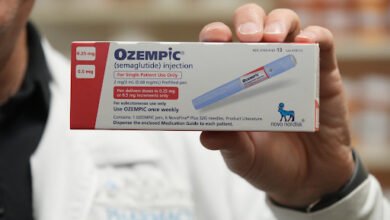DIARRHEA

Diarrhea, also spelled diarrhoea, is the condition of having at least three loose, liquid, or watery bowel movements each day
loose, watery and possibly more-frequent bowel movements — is a common problem.
Luckily, diarrhea is usually short-lived, lasting no more than a few days. But, when diarrhea lasts for weeks, it usually indicates that’s there’s another problem. If you have diarrhea for weeks or longer, you may have a condition such as irritable bowel disorder, or a more serious disorder, such as a persistent infection or inflammatory bowel disease.
Symptoms

Signs and symptoms associated with diarrhea may include:
- Loose, watery stools
- Abdominal cramps
- Abdominal pain
- Fever
- Blood in the stool
- Mucus in the stool
- Bloating
- Nausea
- Urgent need to have a bowel movement
When to see a doctor
If you’re an adult, see your doctor if:
- Your diarrhea persists beyond a few days
- You become dehydrated
- You have severe abdominal or rectal pain
- You have bloody or black stools
- You have a fever above 102 F (39 C)
In children, particularly young children, diarrhea can quickly lead to dehydration. Call your doctor if your child’s diarrhea doesn’t improve within 24 hours or if your baby:
- Becomes dehydrated
- Has a fever above 102 F (39 C)
- Has bloody or black stools
- Has bloody or black stools
Causes

A number of diseases and conditions can cause diarrhea, including
- Viruses. Viruses that can cause diarrhea include Norwalk virus, cytomegalovirus and viral hepatitis. Rotavirus is a common cause of acute childhood diarrhea. The virus that causes coronavirus disease 2019 (COVID-19) has also been associated with gastrointestinal symptoms, including nausea, vomiting, and diarrhea.
- Bacteria and parasites. Contaminated food or water can transmit bacteria and parasites to your body. When traveling in developing countries, diarrhea caused by bacteria and parasites is often called traveler’s diarrhea. Clostridium difficile is another type of bacteria that can cause serious infections that cause diarrhea, and it can occur after a course of antibiotics or during a hospitalization.
- Medications. Many medications, such as antibiotics, can cause diarrhea. Antibiotics destroy both good and bad bacteria, which can disturb the natural balance of bacteria in your intestines. Other drugs that cause diarrhea are cancer drugs and antacids with magnesium.
- Lactose intolerance. Lactose is a sugar found in milk and other dairy products. People who have difficulty digesting lactose have diarrhea after eating dairy products. Lactose intolerance can increase with age because levels of the enzyme that helps digest lactose drop after childhood.
- Fructose. Fructose is a sugar found naturally in fruits and honey. It’s sometimes added as a sweetener to certain beverages. In people who have trouble digesting fructose, it can lead to diarrhea.
- Artificial sweeteners. Sorbitol and mannitol — artificial sweeteners found in chewing gum and other sugar-free products — can cause diarrhea in some otherwise healthy people.
- Surgery. Abdominal or gallbladder removal surgeries can sometimes cause diarrhea.
- Other digestive disorders. Chronic diarrhea has a number of other causes, such as Crohn’s disease, ulcerative colitis, celiac disease, microscopic colitis, and irritable bowel syndrome.
Complications
Diarrhea can cause dehydration, which can be life-threatening if untreated. Dehydration is particularly dangerous in children, older adults, and those with weakened immune systems.
If you have signs of serious dehydration, seek medical help.
Indications of dehydration in adults
These include:
- Excessive thirst
- Dry mouth or skin
- Little or no urination
- Weakness, dizziness, or lightheadedness
- Fatigue
- Dark-colored urine
Indications of dehydration in infants and young children
These include:
- Not having a wet diaper in three or more hours
- Dry mouth and tongue
- Fever above 102 F (39 C)
- Crying without tears
- Drowsiness, unresponsiveness, or irritability
- Sunken appearance to the abdomen, eyes, or cheeks
Prevention

Preventing viral diarrhea
Wash your hands to prevent the spread of viral diarrhea. To ensure adequate hand-washing:
- Wash frequently. Wash your hands before and after preparing food. Wash your hands after handling uncooked meat, using the toilet, changing diapers, sneezing, coughing and blowing your nose.
- Lather with soap for at least 20 seconds. After putting soap on your hands, rub your hands together for at least 20 seconds. This is about as long as it takes to sing “Happy Birthday” twice through.
- Use hand sanitizer when washing isn’t possible. Use an alcohol-based hand sanitizer when you can’t get to a sink. Apply the hand sanitizer as you would hand lotion, making sure to cover the fronts and backs of both hands. Use a product that contains at least 60 percent alcohol.
Vaccination
You can help protect your infant from rotavirus, the most common cause of viral diarrhea in children, with one of two approved vaccines. Ask your baby’s doctor about having your baby vaccinated.
Preventing traveler’s diarrhea
Diarrhea commonly affects people who travel to countries where there are inadequate sanitation and contaminated food. To reduce your risk:
- Watch what you eat. Eat hot, well-cooked foods. Avoid raw fruits and vegetables unless you can peel them yourself. Also, avoid raw or undercooked meats and dairy foods.
- Watch what you drink. Drink bottled water, soda, beer, or wine served in its original container. Avoid tap water and ice cubes. Use bottled water even for brushing your teeth. Keep your mouth closed while you shower.
Beverages made with boiled water, such as coffee and tea, are probably safe. Remember that alcohol and caffeine can aggravate diarrhea and worsen dehydration.
- Ask your doctor about antibiotics. If you’re traveling to a developing country for an extended time, ask your doctor about antibiotics before you go, especially if you have a weakened immune system.
- Check for travel warnings. The Centers for Disease Control and Prevention maintains a travelers’ health website where disease warnings are posted for various countries. If you’re planning to travel outside of the United States, check there for warnings and tips for reducing your risk.



